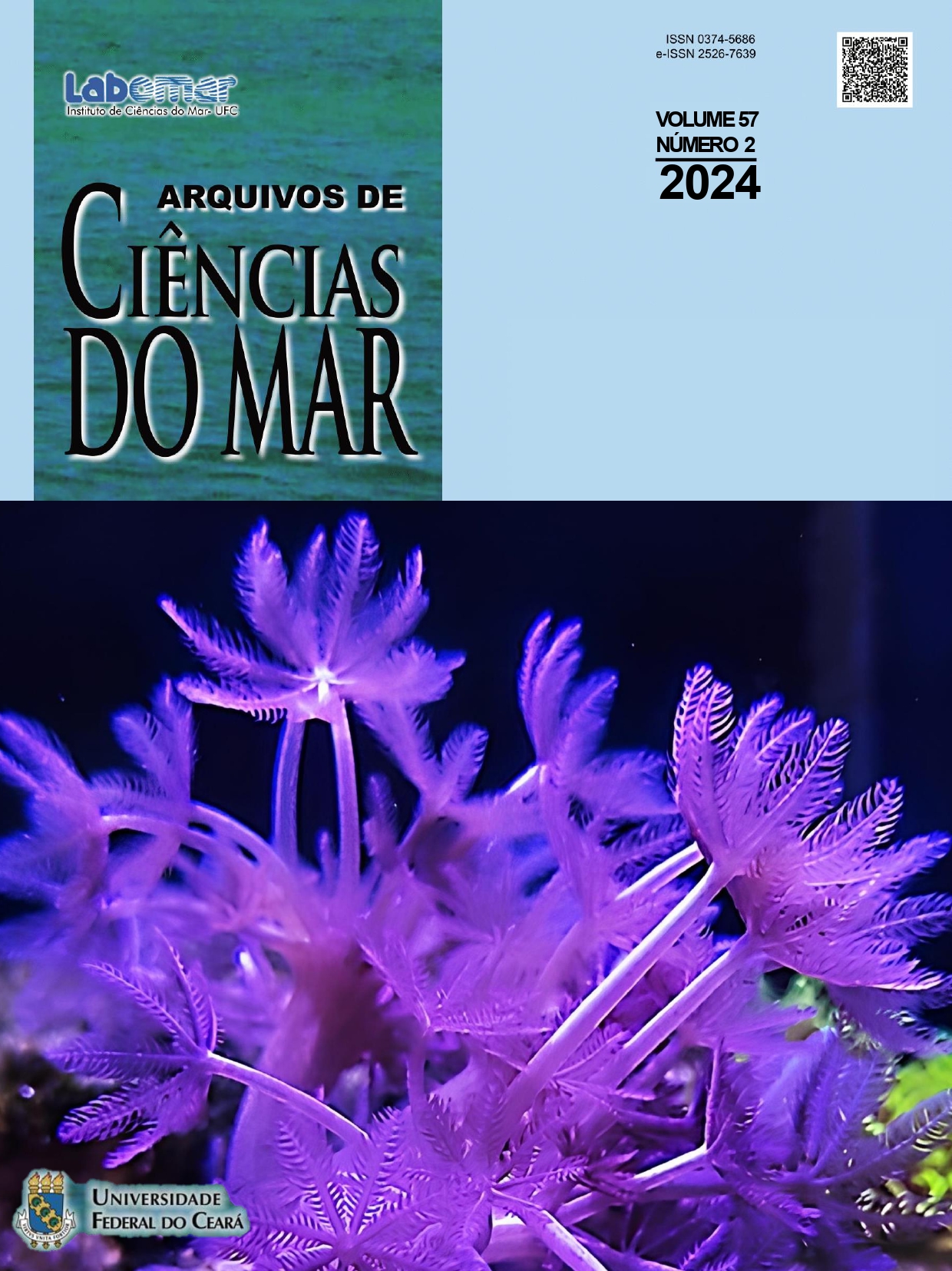INDICADORES DE DESEMPENHO BIOECONÔMICO DA FROTA ATUNEIRA DE CARDUME ASSOCIADO NA REGIÃO DO ATLÂNTICO OESTE EQUATORIAL
Bioeconomic performance indicators of the associated school tuna fishing fleet in West Equatorial Atlantic Region
DOI:
https://doi.org/10.32360/acmar.v57i2.92063Abstract
The study of renewable natural resources implies developing management processes considering that fishing resources are used commercially to the limit to guarantee a fishing effort that will return a value equal to the cost of exploiting these resources. The present aimed to evaluate, from an economic point of view, tuna fishing and the like, focusing on the bioeconomic modelling of fisheries, and was part of the PROTUNA Project. Biological and economic parameters were surveyed for a bioeconomic analysis, and the dynamics of fishing activity were simulated to support management measures for the fishing operations of the tuna fleet based in Areia Branca (RN). Biological data were obtained from the National Tuna and Tuna Like Species Database – BNDA. In contrast, economic data were provided by the Fishing Boat Owners of the State of Rio Grande do Norte Association. A bioeconomic model was used for simple fisheries, such as small-scale fisheries, and it is called Economic Modeling - MECON, which allows for the identification of possible management strategies. The simulation indicates that the resource was overexploited. A balance point could probably be reached with a 32% reduction in fishing effort, in the number of vessels, and 20% in fishing mortality, with the possibility of increasing investments in catchability compared to the effort levels exerted.
Keywords: Bioeconomic modelling, Tuna fishing fleet, Associated school fishing, West Equatorial Atlantic.
Downloads
Published
Issue
Section
License
Copyright (c) 2024 Arquivos de Ciências do Mar

This work is licensed under a Creative Commons Attribution 4.0 International License.
1. Proposta de Política para Periódicos de Acesso Livre
Autores que publicam nesta revista concordam com os seguintes termos:
- Autores mantém os direitos autorais e concedem à revista o direito de primeira publicação, com o trabalho simultaneamente licenciado sob a Licença Creative Commons Attribution que permite o compartilhamento do trabalho com reconhecimento da autoria e publicação inicial nesta revista.
- Autores têm autorização para assumir contratos adicionais separadamente, para distribuição não-exclusiva da versão do trabalho publicada nesta revista (ex.: publicar em repositório institucional ou como capítulo de livro), com reconhecimento de autoria e publicação inicial nesta revista.
- Autores têm permissão e são estimulados a publicar e distribuir seu trabalho online (ex.: em repositórios institucionais ou na sua página pessoal) a qualquer ponto antes ou durante o processo editorial, já que isso pode gerar alterações produtivas, bem como aumentar o impacto e a citação do trabalho publicado (Veja O Efeito do Acesso Livre).

